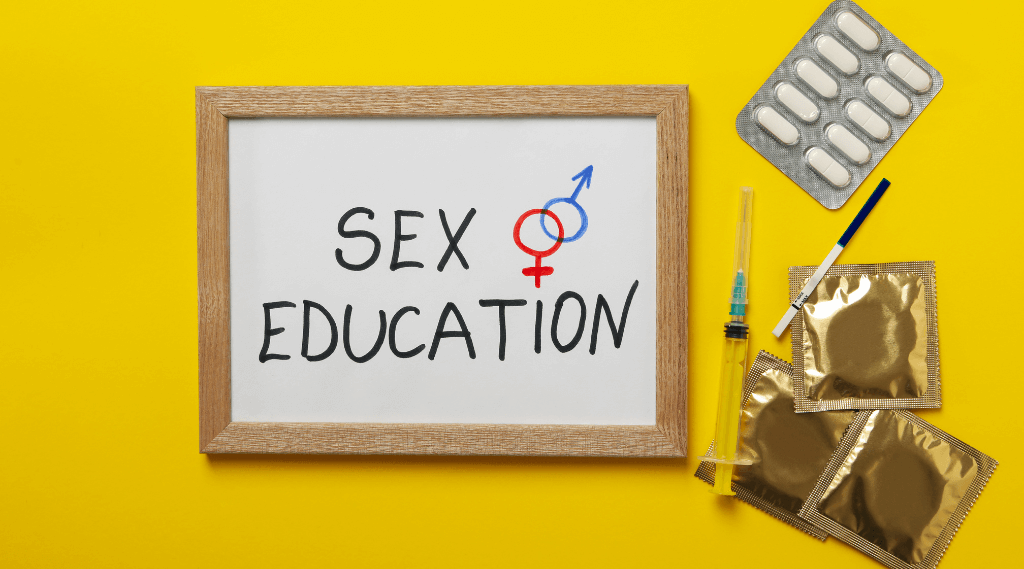Addressing Myths and Misconceptions in Online Sex Education

Sex education is a crucial aspect of our lives. It equips individuals with knowledge and understanding about their bodies, relationships, and sexual health. Unfortunately, it’s also an area filled with myths and misconceptions that can be harmful.
One widespread misconception is that pornography serves as a valuable source of sexual education. While it’s true that pornography such as bonporn is readily available online and can be a good teacher, it’s crucial to emphasize that it is not always a reliable or safe way to learn about sex. It is mostly for entertainment.
In this blog post, we will delve into the world of online sex education, addressing common myths and misconceptions while highlighting the importance of accurate information.
By the end of this article, you’ll have a clearer understanding of the role online resources play in providing comprehensive sex education and how to navigate the web for reliable information.
The Need for Comprehensive Sex Education
Comprehensive sex education, often referred to as “realistic” or “evidence-based” sex education, goes beyond teaching the basics of reproduction. It covers a wide range of topics, including relationships, consent, sexual orientation, and contraception. The need for such education cannot be overstated.
When individuals lack access to comprehensive sex education, they may turn to unreliable sources or rely on outdated information, leading to potentially harmful consequences. Uninformed choices can result in unintended pregnancies, sexually transmitted infections (STIs), and strained relationships.
Common Myths in Online Sex Education
Myth 1: Abstinence-only is the most effective approach
One common myth is that abstinence-only education is the most effective approach to sex education. While abstinence is a valid choice, it’s not the only one. Comprehensive sex education recognizes that individuals have different needs and choices.
Debunking the Myth: Research has consistently shown that comprehensive sex education is more effective in reducing risky sexual behaviors, such as unprotected sex, compared to abstinence-only programs. It provides information about contraception and safe sex practices, giving individuals the tools to make informed decisions.
Myth 2: Sex education promotes promiscuity
Another myth is that sex education encourages promiscuity. This misconception assumes that teaching young people about sexuality will lead to irresponsible sexual behavior.
Refuting the Misconception: Studies have found that sex education does not increase sexual activity but, in fact, can delay the onset of sexual activity and reduce the number of sexual partners. Comprehensive sex education emphasizes the importance of responsible choices, consent, and communication within relationships.
Myth 3: Sex education undermines family values
Some believe that sex education undermines family values and should be the sole responsibility of parents. However, sex education is not about replacing parental guidance but complementing it.
Addressing Concerns: Comprehensive sex education encourages open communication between parents and children. It provides accurate information and equips parents to have meaningful conversations about sexual health and relationships with their children. It doesn’t diminish the role of parents but empowers them to be better educators.
The Role of Online Resources in Correcting Misconceptions
In today’s digital age, online resources have become invaluable tools for dispelling myths and providing accurate sex education. Let’s explore how these resources are playing a crucial role.
Accessible Information
The internet has made information more accessible than ever before. Reputable websites and organizations offer a wealth of knowledge on sexual health, relationships, and consent. However, it’s essential to ensure that the sources are credible.
Fact-Checking and Debunking Myths
Fact-checking platforms and websites dedicated to debunking myths about sex education exist to counter misinformation. These resources are essential for those seeking accurate information in a sea of myths.
Interactive and Inclusive Learning
Online sex education resources often use interactive methods, such as quizzes and videos, to engage learners. They also prioritize inclusivity, ensuring that information is accessible to individuals of all backgrounds and identities.
Overcoming Resistance and Promoting Comprehensive Sex Education
Resistance to comprehensive sex education can be a significant barrier. To address this, we must understand the concerns and employ effective strategies.
Addressing Concerns
It’s crucial to acknowledge and address the concerns of those resistant to comprehensive sex education. Common concerns include age-appropriateness, religious beliefs, and cultural values.
To overcome these barriers, educators and advocates can:
Tailor sex education programs to be age-appropriate, ensuring that the content is suitable for the developmental stage of the learners.
Emphasize that sex education respects diverse beliefs and values. It does not impose a specific ideology but provides information for individuals to make their own informed choices.
Advocacy and Policy Changes
Advocacy plays a vital role in promoting comprehensive sex education. Advocates work to change policies at the local, state, and national levels to ensure that evidence-based sex education is accessible to all.
Advocacy efforts may include:
Lobbying for comprehensive sex education in schools, backed by research and evidence of its effectiveness.
Engaging with parents, teachers, and community leaders to build support for comprehensive sex education programs.
Conclusion
In a world filled with myths and misconceptions about sex education, it’s essential to seek out accurate and comprehensive information. Online resources are powerful tools for dispelling myths, providing evidence-based education, and promoting responsible sexual behavior.
By understanding the value of comprehensive sex education and advocating for its inclusion in schools and communities, we can ensure that everyone has access to the knowledge they need to make informed decisions about their sexual health and relationships.